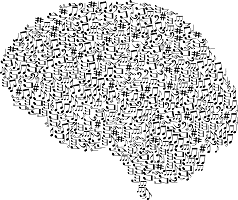By Daniel Thomas, managing director at Chroma Therapies
Music, in general, can evoke numerous emotions – it allows you to re-live a memory and cry (or laugh), to motivate you to go further in an activity like running, to excite, to help you release frustration or to lift one’s mood and give an immediate happiness ‘boost’.
Similarly, music therapy can help evoke self-expression and tackle emotions within a therapeutic context working with a music therapist. HCPC registered music therapists implement a range of techniques as a way to encourage participants to connect and speak more freely about their issues. Listening to pieces of music personal to the participant can help motivation to heal. Music therapists are also able to work to support a range of functional outcomes around speech, movement and cognitive aspects of a person’s recovery.
However, music therapy is more than just listening to music. Music therapists learn to guide clients through the process of listening to music, playing music, improvising with instruments to help unlock buried feelings and emotions.
Music Therapy sessions can also use improvisation as their core therapeutic approach - using, for instance, drums as a medium to express anger, frustration…joy. The speed and the strength of each hit will be individual and signify their feelings at that time. These can then be explored with the therapist to discuss the drumming and healing can begin.
Most of all, music therapy is fun – much more so than talking therapies. This process allows both children and adults alike to enjoy the freedom that comes with it which in turn puts participants at ease, making them feel more comfortable to open up. It’s all about the healing process.
Music therapy is also extremely inclusive, so those who are unable to communicate verbally can also benefit from such sessions. The result is enhanced mental wellbeing – which can present itself in numerous ways for instance, smiling, eye movements, deeper breathing – it all depends on the individual and their specific condition as to the benefits they experience from music therapy, but it always has a positive impact upon mental wellbeing.
Music therapy is so versatile it can be used in a wide range of settings, but is usually used to help address an issue - whether that be emotional, psychological or behavioural, such as following a traumatic incident, unexplained aggression, coming to terms with a life-changing injury, following surgery as a motivational tool for rehab engagement to name a few. It’s the emotional and psychological response to music that helps the participant to start the healing process and move forward in their lives in a positive way.
For more information go to: www.wearechroma.com
